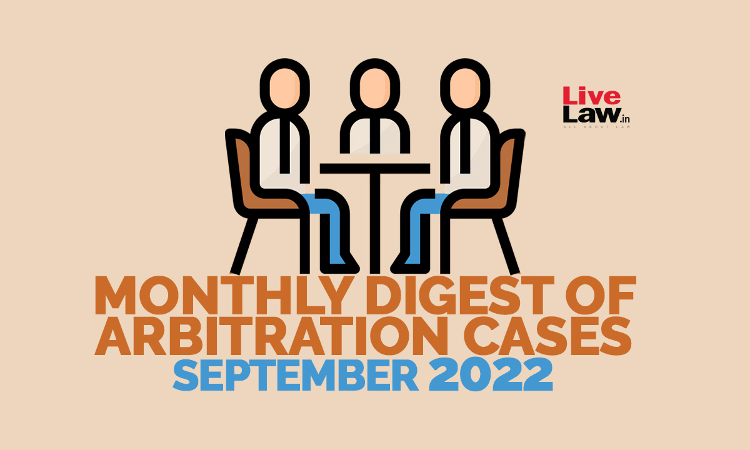- Home
- /
- News Updates
- /
- Arbitration Cases Monthly Round-Up:...
Arbitration Cases Monthly Round-Up: September 2022
ausaf ayyub
1 Oct 2022 6:30 PM IST
Supreme Court: Arbitration Clause Has To Be Given Effect Even If It Does Not Expressly State That Decision Of Arbitrator Is Final & Binding On Parties: Supreme Court Case Title: Babanrao Rajaram Pund versus Samarth Builders & Developers Citation: 2022 LiveLaw (SC) 747 The Supreme Court observed that an arbitration clause has to be given effect even if it does not...
Next Story



